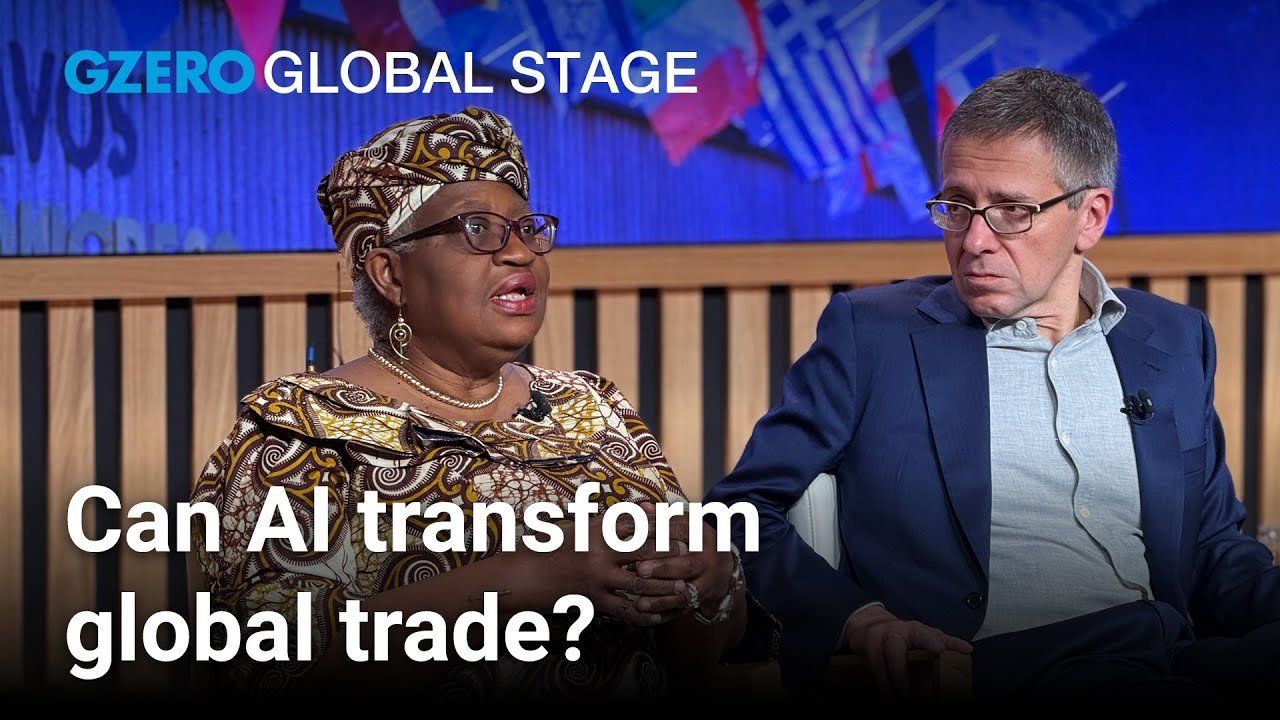
"AI has (the) potential to do one thing which is very important to get developing countries more integrated into global markets and that is reduced trade costs,” said Ngozi Okonojo-Iweala, Director-General of the World Trade Organization, during a Global Stage livestream at the World Economic Forum in Davos.
She shares that the organization’s new report “Trading with Intelligence,” shows significant upsides to AI in trade. At a time when supply chains remain fragile, Iweala notes that "we've done simulations that show that world trade could increase by about 14% by 2040.”
However, Iweala emphasizes that technology adoption must happen across the board and include the Global South in the conversation. That means ensuring developing countries have the electrical infrastructure and capacity to handle the technology. Otherwise, she warns that the “increase drops substantially; it halves actually.”
This conversation, moderated by Becky Anderson, was part of the Global Stage series at the 2025 World Economic Forum in Davos, Switzerland, presented by GZERO in partnership with Microsoft.